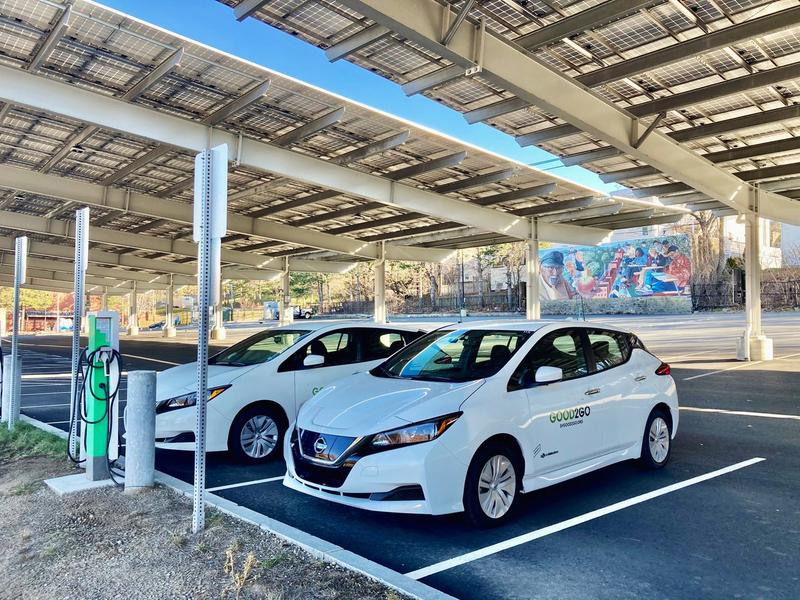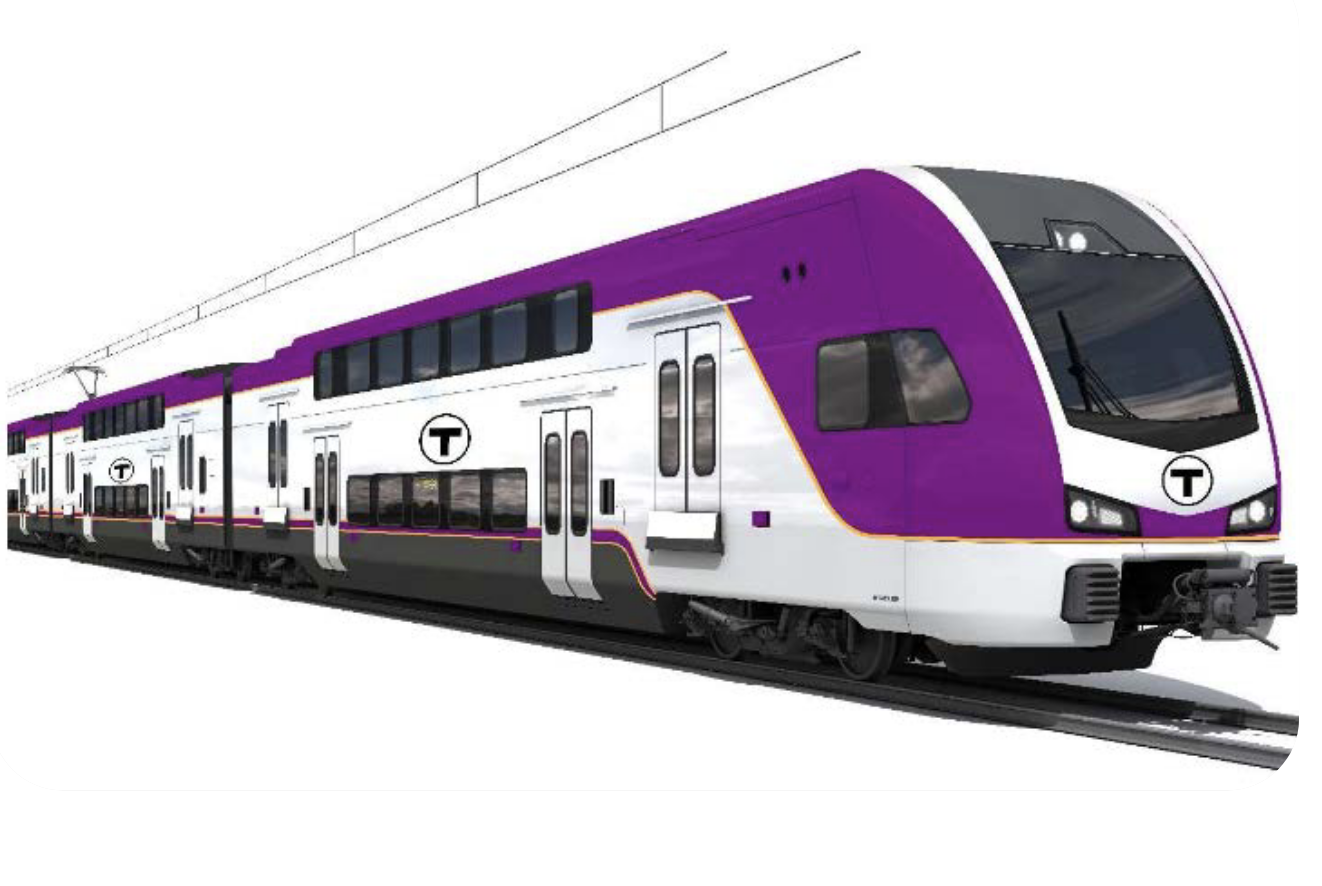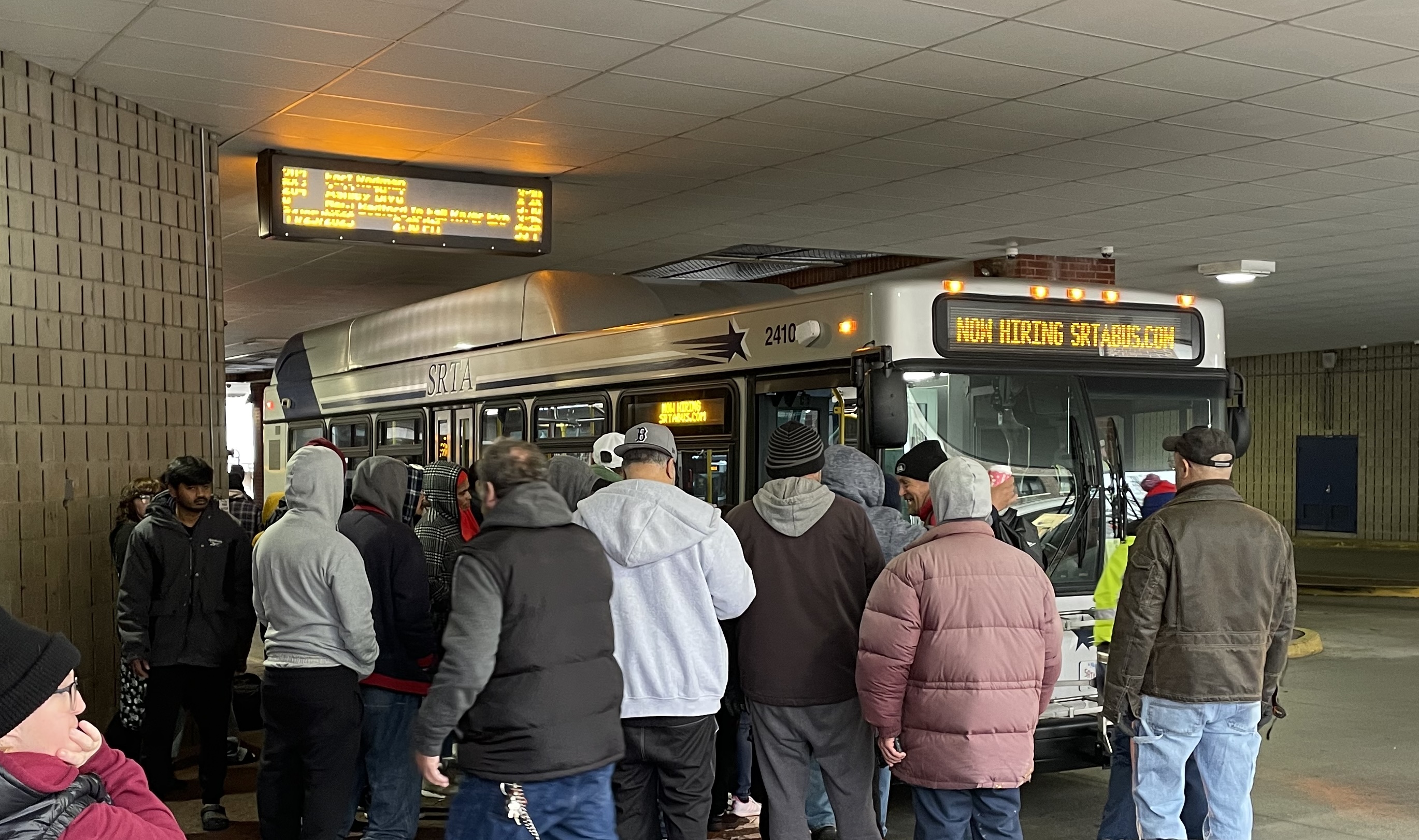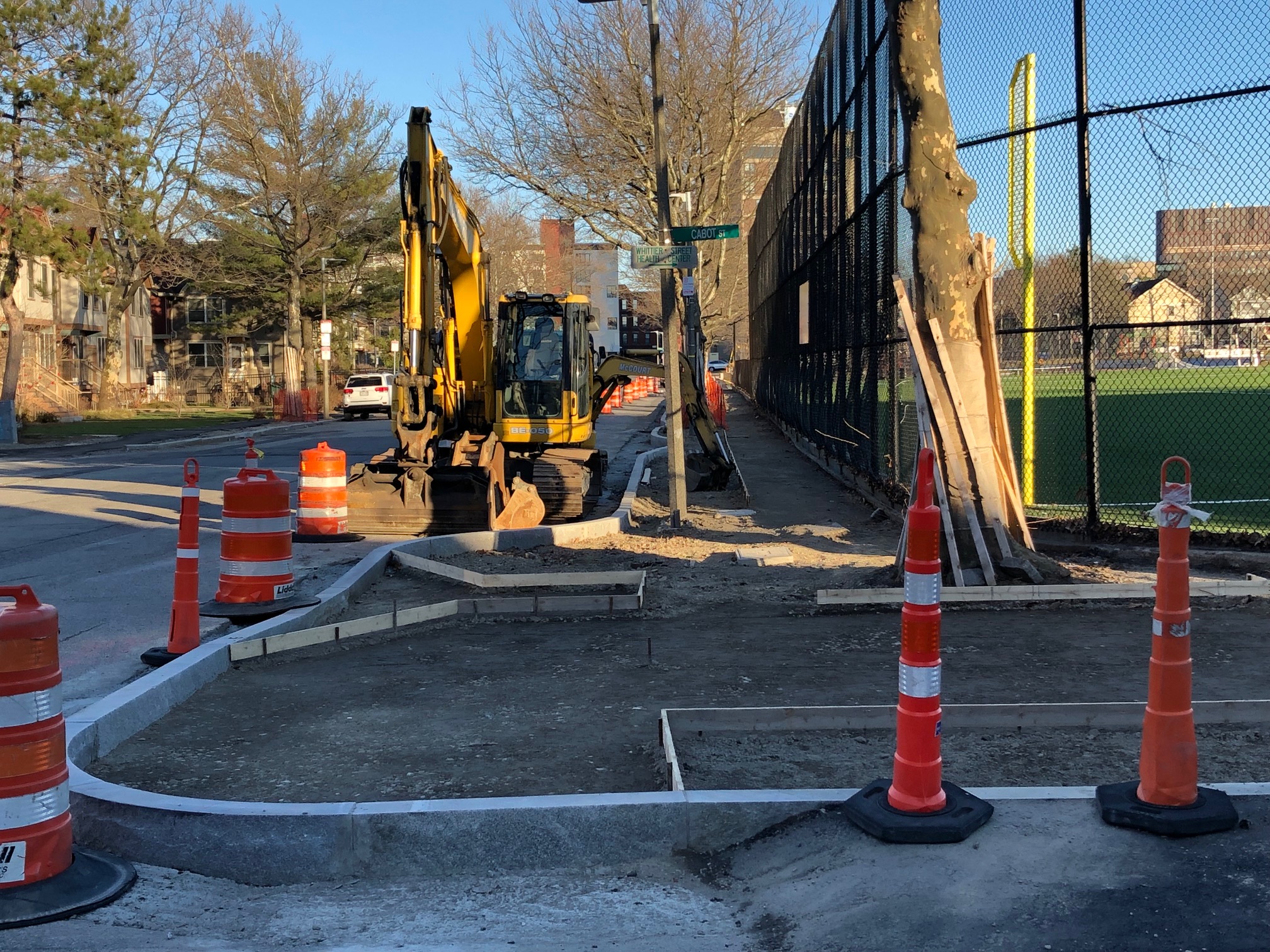A new nonprofit carsharing business recently launched in Roxbury with the goal of offering a lower-cost, all-electric carsharing service for lower-income households.
Good2Go started offering short-term rentals of electric cars from three charging stations in Roxbury and Jamaica Plain last month.
The all-electric fleet isn't the only thing that distinguishes the new business from other carsharing competitors: Good2Go also offers a tiered pricing structure in which qualified low-income members pay only half of the service's normal rate, which is $10 per hour.
Good2Go is offering its cars from three locations for now: the Roxbury Community College parking lot (pictured above), a City of Boston municipal parking lot at 737 Centre Street in Jamaica Plain, and a parking lot at the new Bartlett Place affordable housing development near Nubian Square, with support from the project's developers, Nuestra Comunidad Development Corporation.
All three of those locations enjoy excellent transit service, and have a high number of car-free households living nearby. Good2Go's founders hope that an affordable carsharing option will make car-free living in those neighborhoods even more appealing, by giving neighbors access to a car without the burdens of car loans, insurance costs, and other expenses.
"The push for electrification is leaving a lot of folks behind. There are only so many folks among us who can purchase a new EV, or even a used EV," says Creighton Randall, the CEO of Mobility Development, the company that's helping Good2Go get started in Boston. "This is a way for states to advance climate goals without leaving disadvantaged communities behind."
Related:
Randall's company has also helped similar carsharing businesses get started in other parts of the country, like Miocar, which parks its cars at affordable housing complexes among several rural farming communities in California's Central Valley, and BlueLA, another service with income-tiered pricing, in Los Angeles.
Randall says that Good2Go is operating as a pilot for now, and is looking for a local nonprofit that can steward the project in the long term.
Unlike for-profit carsharing companies, Good2Go's equity-focused business model will probably require a small operational subsidy to keep it going when the seed funding runs out.
But if four shared cars could potentially replace a parking lot of 40 privately-owned cars in valuable, transit-oriented locations, real estate developers and property managers may well decide that Good2Go is a good deal for them, too.






